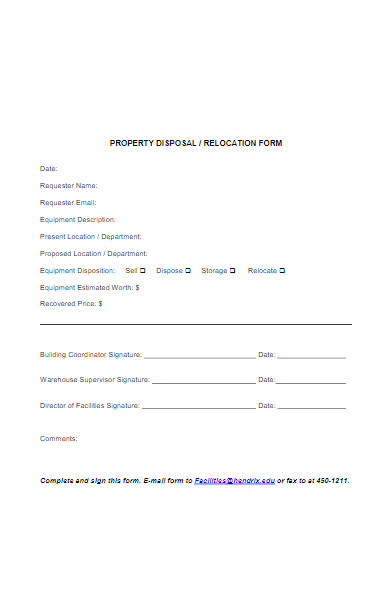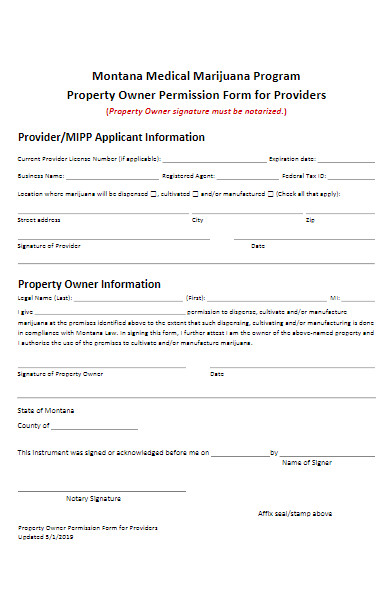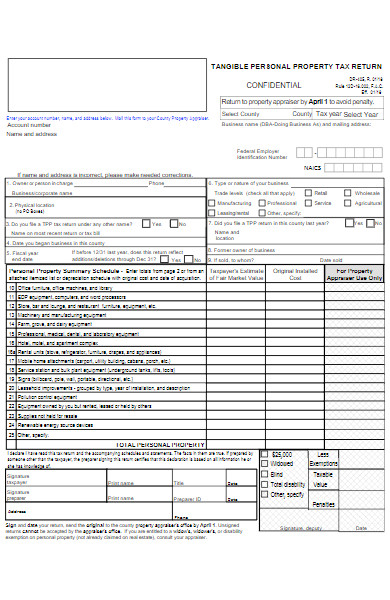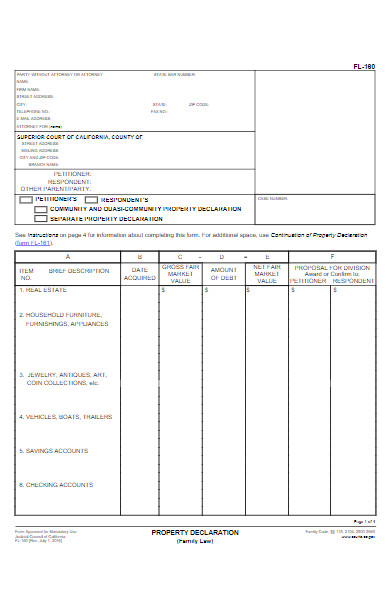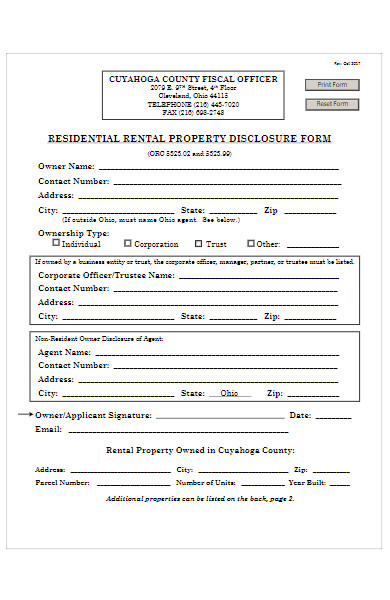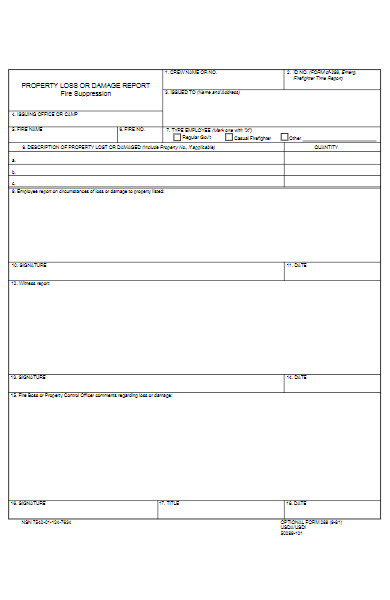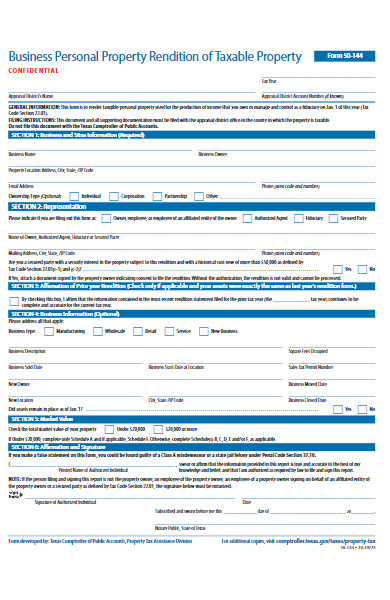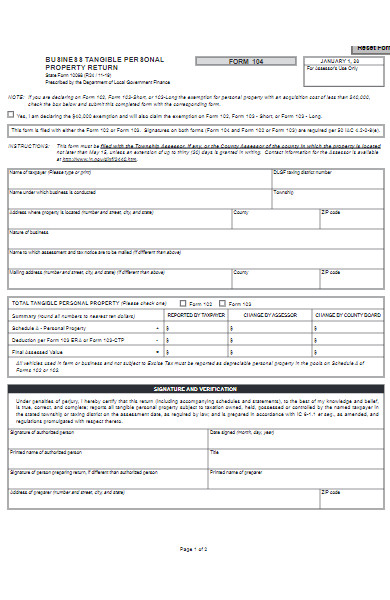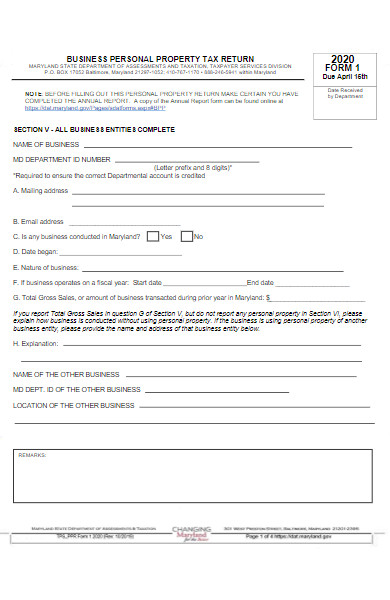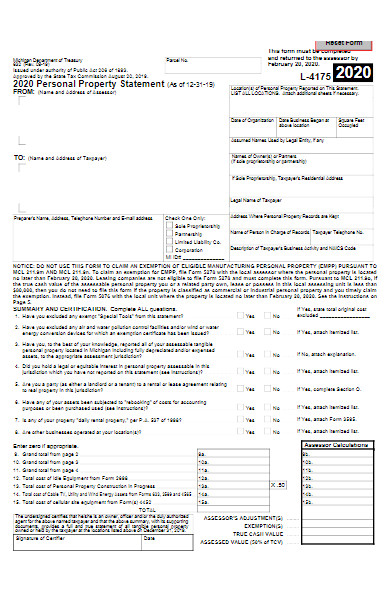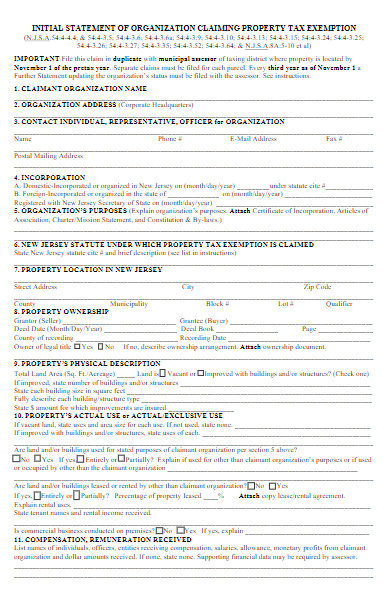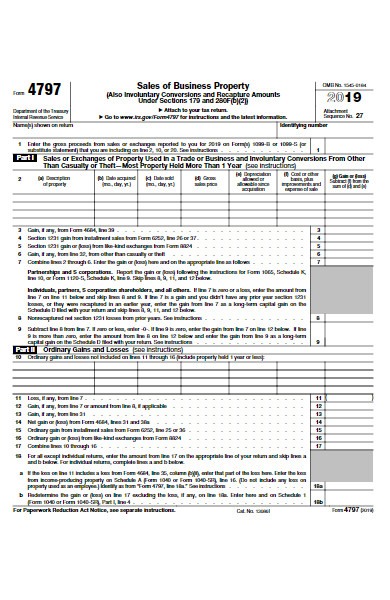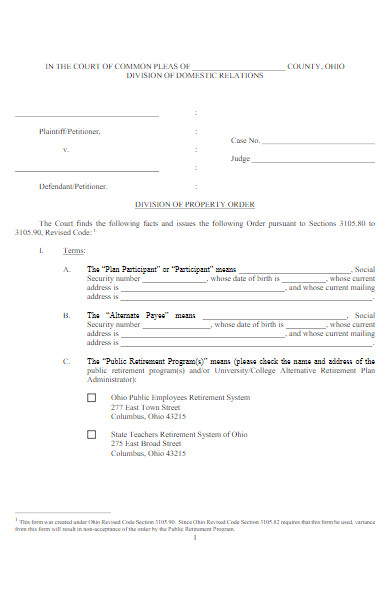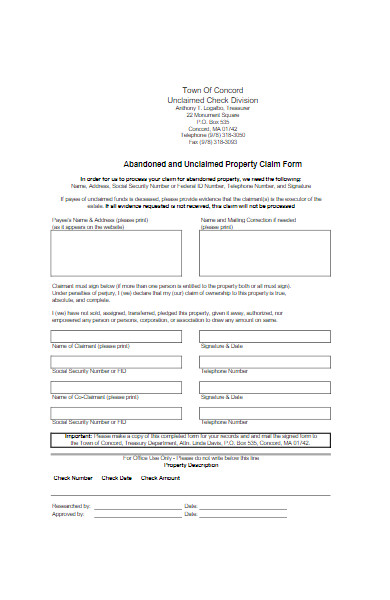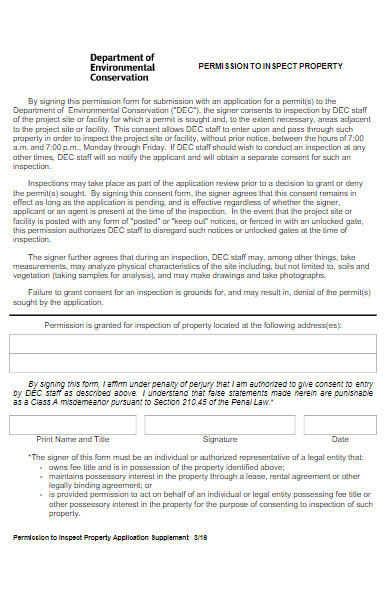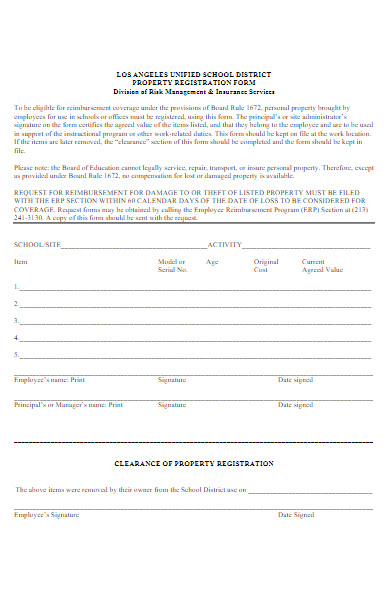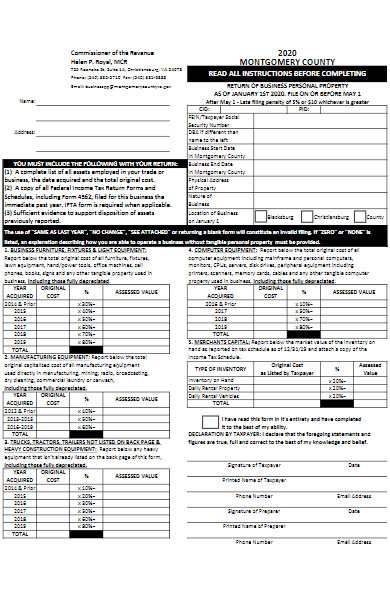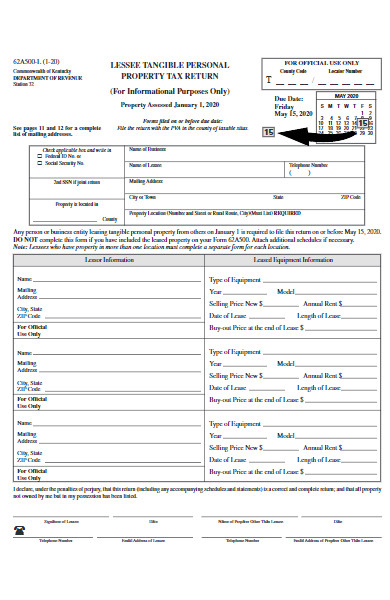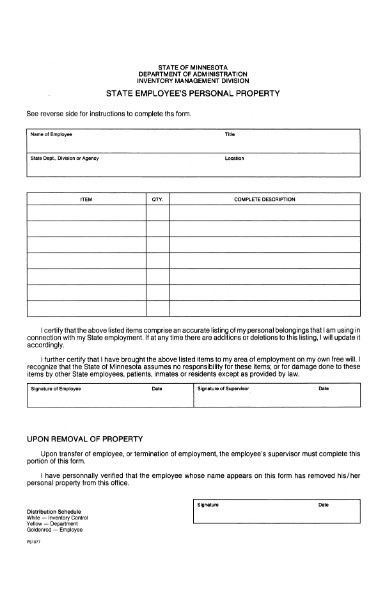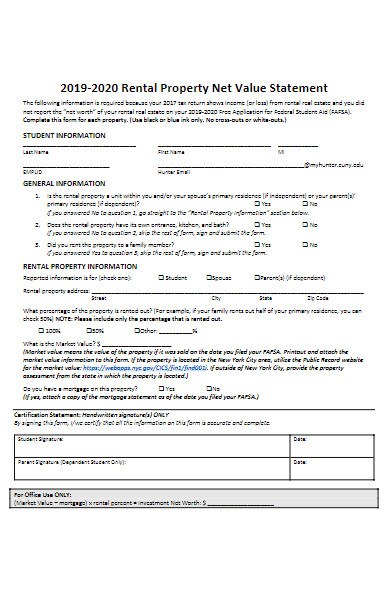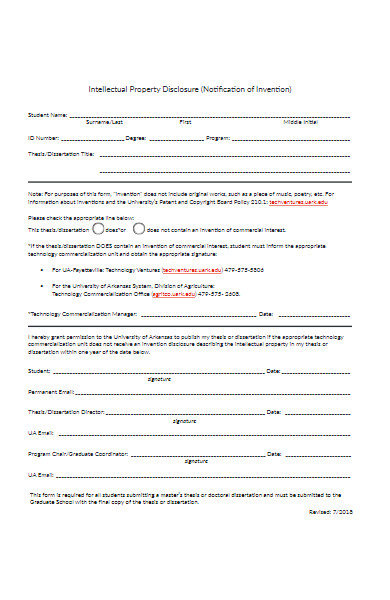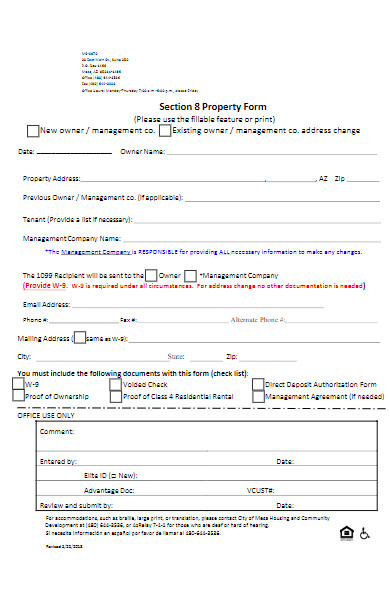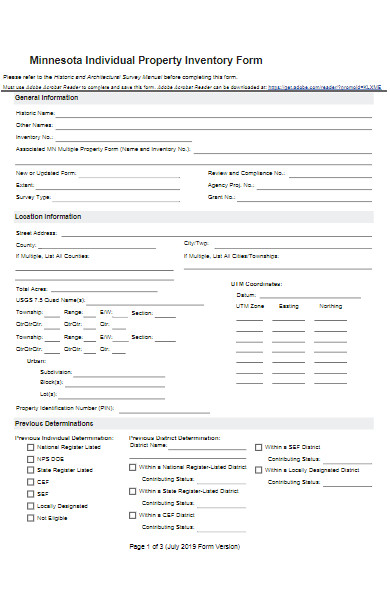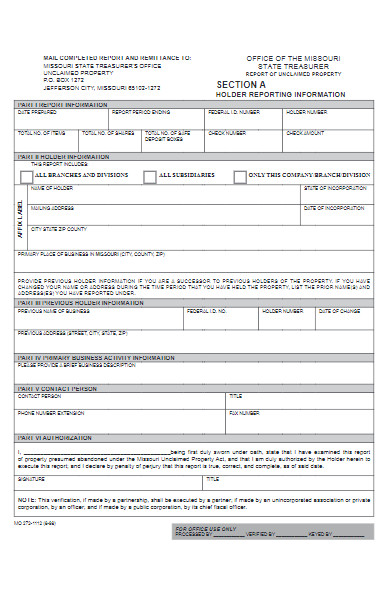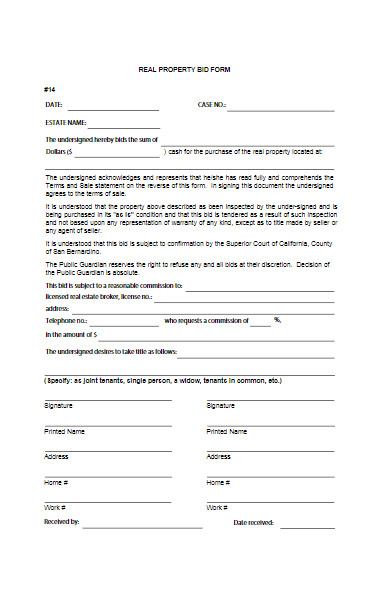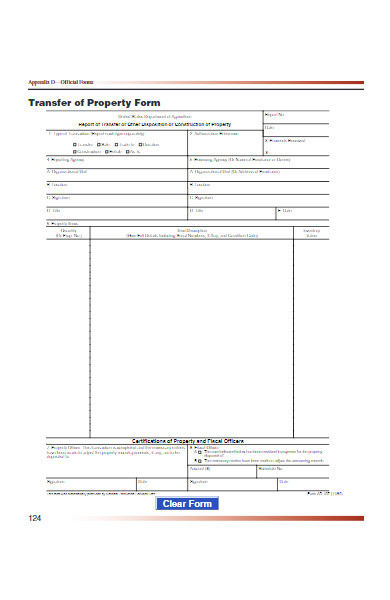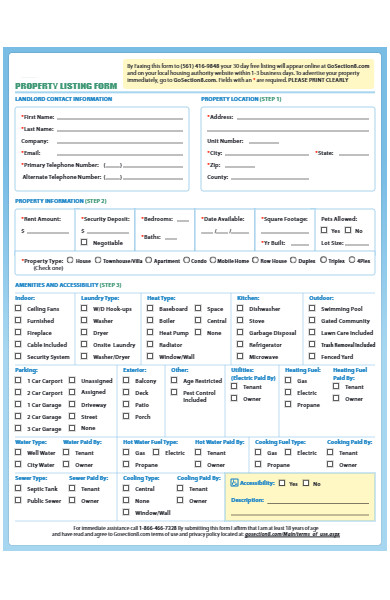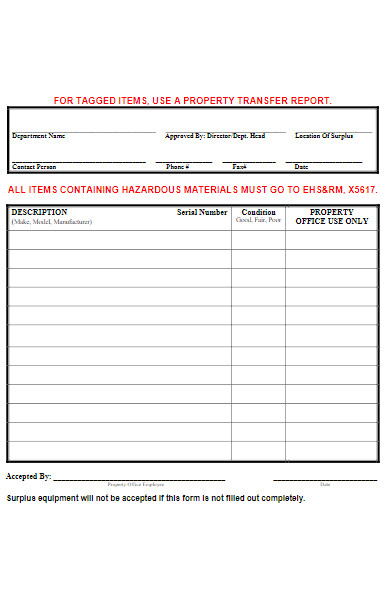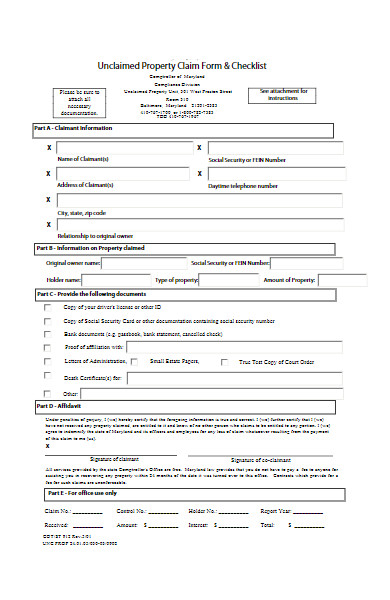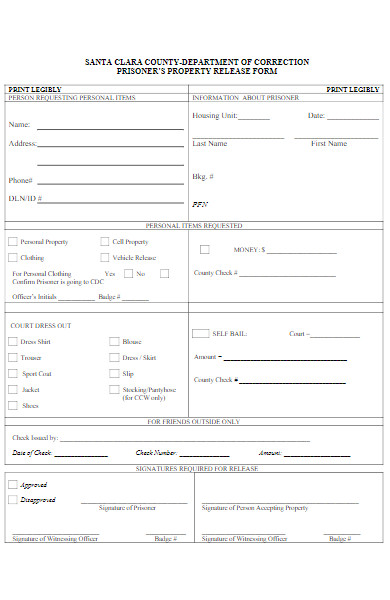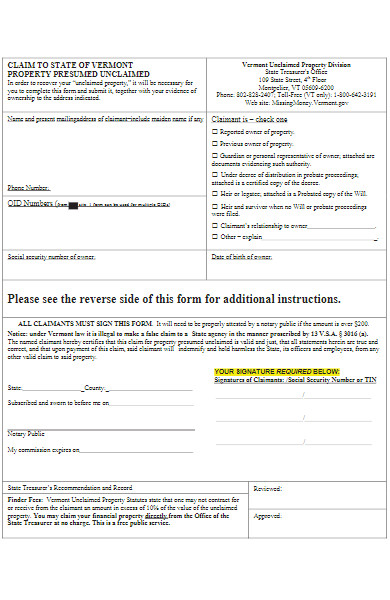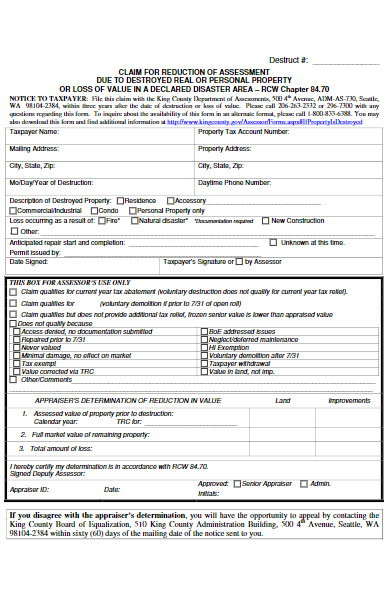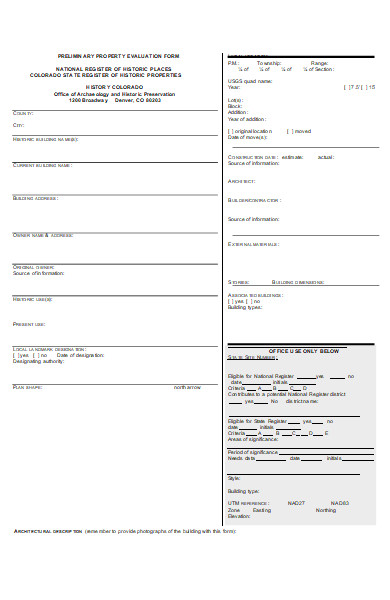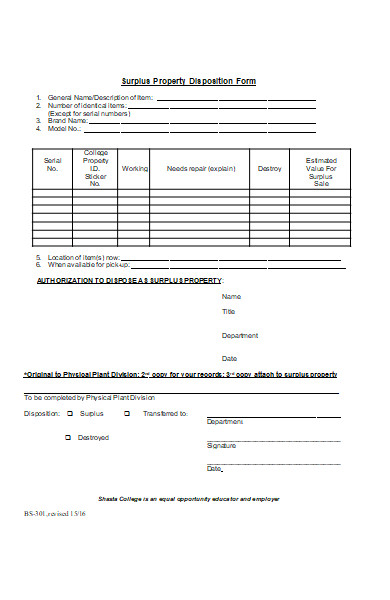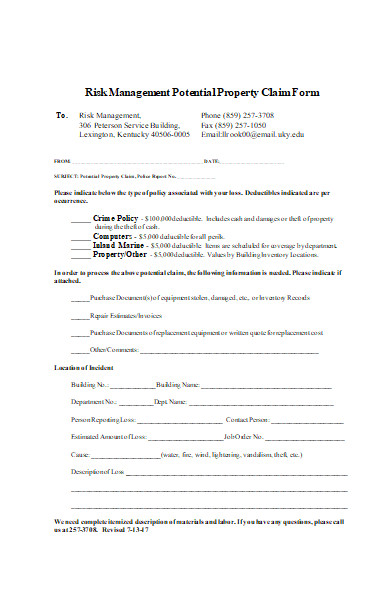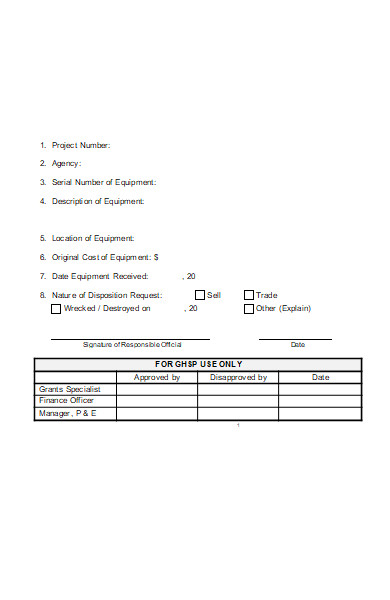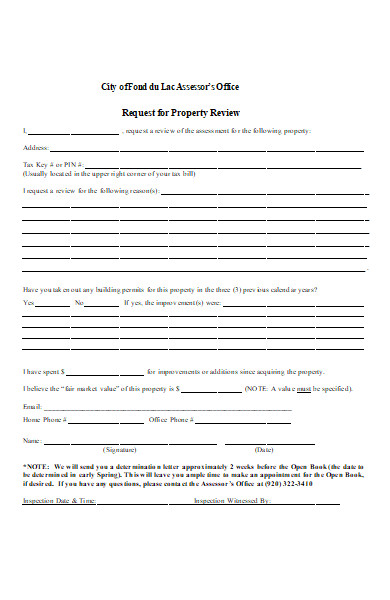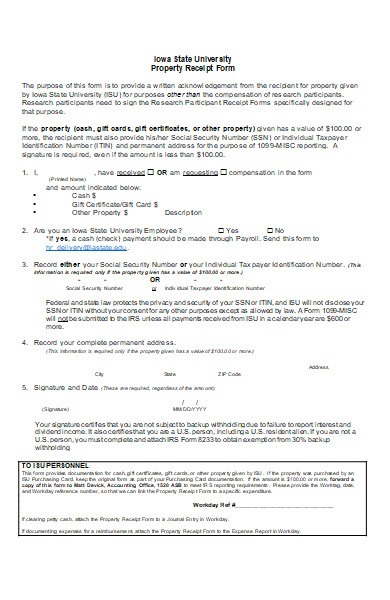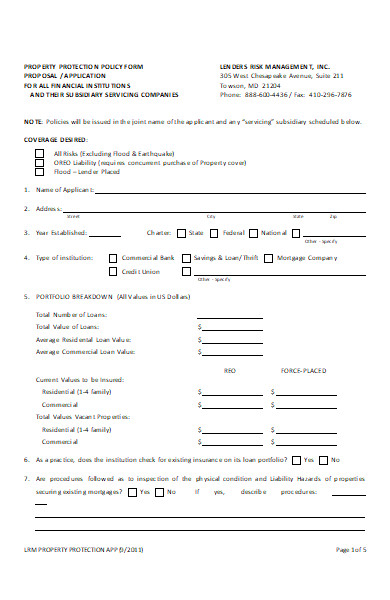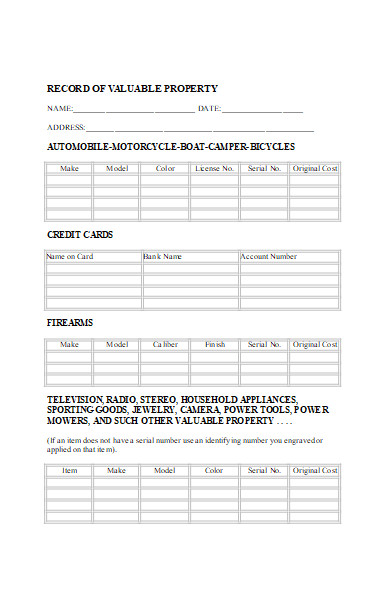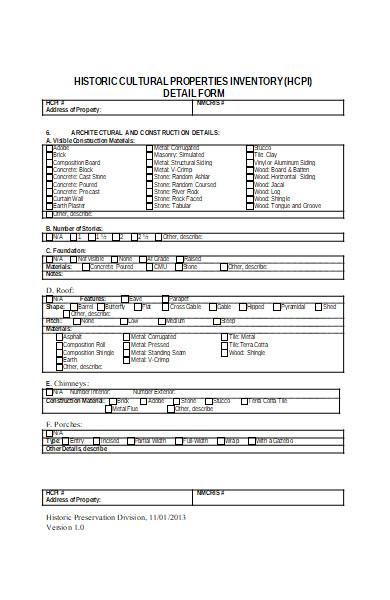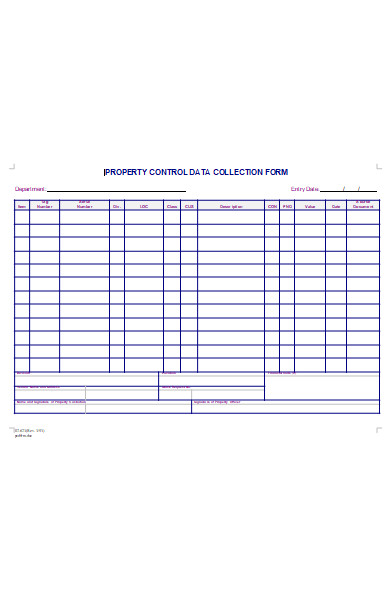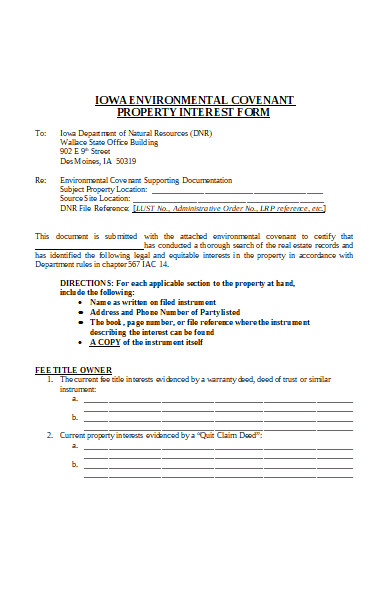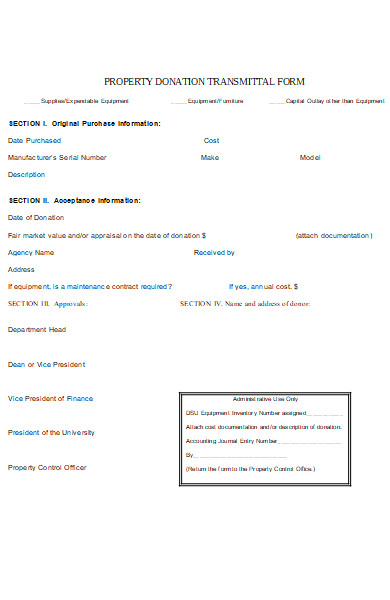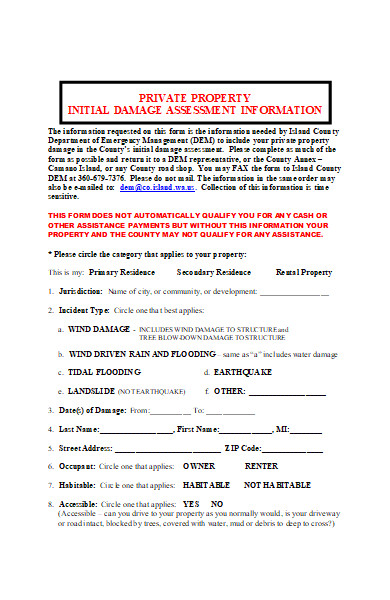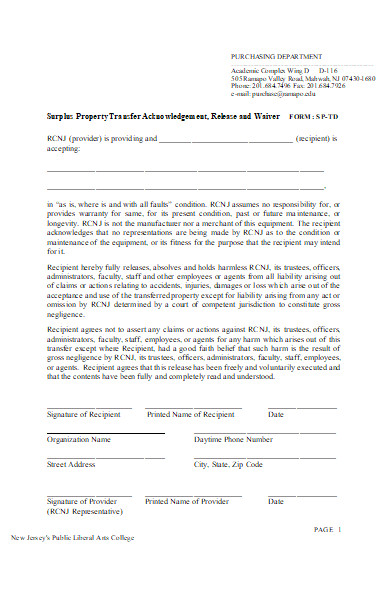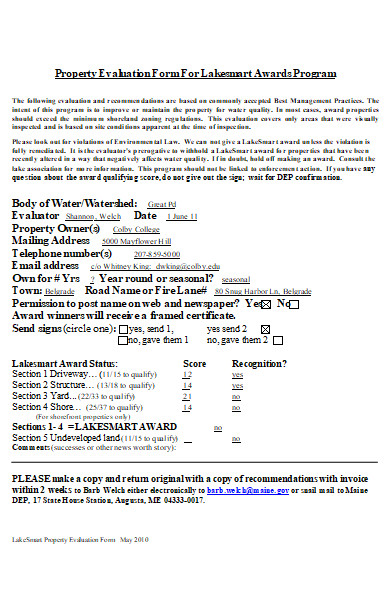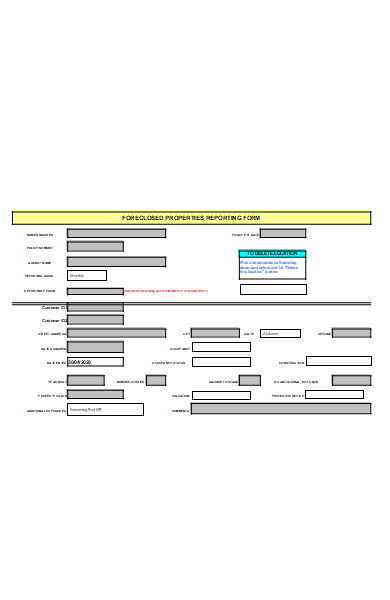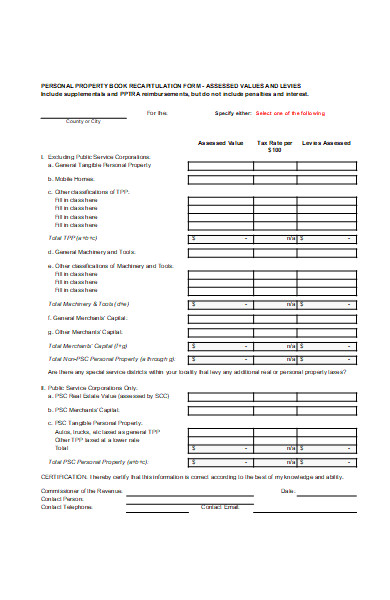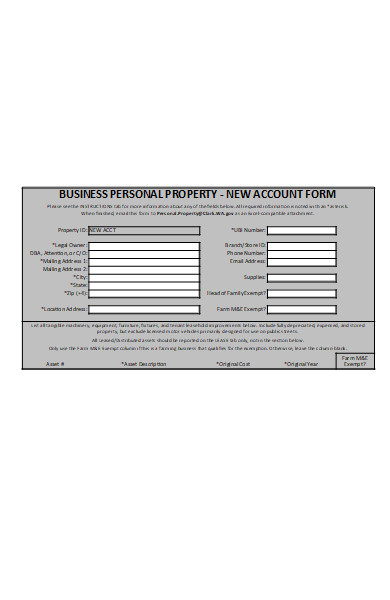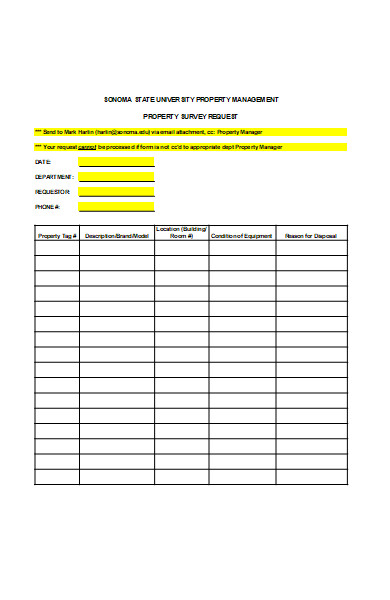From being considered as a basic commodity, a house is now considered as a social symbolism for a person’s lifestyle dynamics. According to Statista, in 2018, there were 617 thousand houses sold in the US, and it has been increasing since 2011. Today, an average home cost 385,000 US dollars. Although the recession in 2008 heavily impacted the industry, it continues to flourish with 138.45 million housing units in the US—this means the real estate industry is not slowing down at any time. And that is why property forms will stay relevant over the next few years.
FREE 50+ Property Forms in PDF | MS Word | MS Excel
What Is a Property Form?
A property form is an essential document in the real estate industry. It has been part of every administrative transaction request made within the industry ever since. Say, for example, you want to request an update about your property or provide supporting details for your property’s approximate market value. But, you do not have the time to process the transaction personally. The solution to this dilemma is to fill out a property form.
Moreover, some property forms are related to a legal declaration document, property agreement form, property reservation form, property tax forms, personal property form, property assessment form, real estate form, or rental application form.
Why Are Property Forms Important?
Because of their efficiency in gathering meaningful information in an organized structure, forms have been around for a significant amount of time. And that is why using a property form can make a huge difference for both property owners and buyers who are looking to collate real estate data. Whatever kind of real estate transaction you want to record or process, there is a perfect property form for that. For instance, a property form can help a potential buyer to submit information regarding the property and arrange viewing dates easily. Or, use the form to inquire about the property’s market price.
Defining the Different Types of Property Forms
Whether you like it or not, you need to fill out different printable forms if you are to buy a real estate property. That is why it is important to familiarize them. If not, then you might be signing the wrong paper, and worse things could happen.
So, here are some of the most commonly used forms in the real estate industry. Each fillable form has a different purpose. More on this below:
1. Intellectual Property Form
According to QuickBooks.com, an intellectual property (IP) is an idea exclusive to whom the right is granted, such as original work of arts, discoveries inventions, designs, phrases, and symbols, among others. To protect an intellectual property right, hence, the need for an intellectual property form.
2. Personal Property Tax Return Form
A personal property tax return is a form used to file tax authority reports, including income, expenses, and other imperative tax information. It allows taxpayers to know how much their tax liability is, tax payment schedule, or request for a tax refund due to overpayment.
3. Property Ownership Form
A property ownership form is a document that justifies your ownership over a real estate property. It serves as evidence of who is responsible for the property, meaning the owner is obligated to pay property tax, repair property damage, or monitor the property’s market value.
4. Property Claim Form
A property claim form is a formal request by a policyholder to a real estate firm to conduct property deed transfer over the unclaimed property. The real estate company will validate the claim and, once it has been approved, issues agreement to the party claiming the ownership over the property.
5. Permission to Inspect Property Form
A property inspection permission form is a document that consents the requesting party to inspect your property (project site, facility, etc.) It allows the people to enter your property and conduct necessary inspections.
6. Property Registration Form
A property registration form is a document that carries out relevant information regarding your property. It is also used to register purchased property, pay stamp duty, and charge for the sales deed. The office of the sub-registrar will conduct the registration process.
How To Prepare for a Successful Property Investing
The famous business magazine, Forbes, posted an article on their website talking about the way around successful property investment. It said that in recent years, the property interest rates are low and rental demand is rising, which is a go signal for property investing. They round up their report with ways investors can size up their competitiveness and brace themselves for a greater real estate triumph. Learn more below:
1. Start Protecting Your Asset
If you are taking extra miles with your undertaking, you should know that asking permission is better than asking for forgiveness. Expectedly, investing in real estate property will sometimes lead you to the industry’s gray areas. However, a successful business investor must know that abiding with the rules and regulations should not be considered as a barrier to your success. If you try to ask people who have been in the business for a long time, they will tell you to protect your assets from a worst-case scenario. You can do this by acquiring full coverage property insurance and reviewing the right asset protection for you.
2. Prepare Your Taxes
Believe it or not, real estate investing is not just about generating income but also for tax benefits. As you are establishing your business, take the chance to prepare all your tax documents, and organize them for filing. You can file tax payments on your own or with your accountant. To smoothen your tax information-gathering task here are some things you can do: (1) Track your income and expense; (2) establish strategies with your accountant as to how to take advantage of your taxes; (3) appreciate depreciation because it will reduce taxable net income; and (4) file for 20% pass-through deduction and deduction for the rental property to maximize your deduction benefits.
3. Always Improve From Your Experiences
Your knowledge about real estate is your building block to success. It is just a cycle: learn, take action, make a mistake, and adjust accordingly. You can learn from various resources, such as real estate books, online seminars, newsletters, personal training sessions, joining investment clubs, and mentorship. Success in the real estate industry takes more than just your investment. Hence, you need to go further to see what are the true hallmarks of favorable outcomes in real estate investing.
How Do You Craft a Property Form That Works?
Crafting a property form is easy if you know the basic details of the property buy and sell process. These details are easy to obtain. On top of that, being familiar with the required fields and sections for the form will make it a lot easier. But most importantly, after providing the needed details, double-check its accuracy. From the basic information of the form down to the property information, all these must be based on facts. For more tips in creating property forms, continue reading below:
Step 1: Start a Plan
Like most tasks, you need to establish a plan before diving straight into creating the property form. With a plan, you can set out your goals and create a process to achieve them. However, if it seems difficult to start, take your time and ask yourself, “Why is there a need to make a property form?” The answer to that question is an indicator of your objectives and will be the first step in your plan. Furthermore, once the objectives are well-established, continue with the steps that will kick-off and end the task. If you want to go the extra mile, you can even record the gradual milestones along the way so that you can monitor your progress.
Step 2: Draft the Form
Drafting the form will create a visual representation of the document and allows you to see a bigger perspective of your task. Next, provide the required fields in the property form—these are the spaces where the user should fill out with the needed details. Additionally, assign sections relative to the details you want to gather. If you want a great property form as an outcome, make sure to simplify its content. By doing that, the form will become easy-to-understand, user-friendly, and refined.
Keep in mind that forms are good communication tools. As much as you want your form to be aesthetically pleasing, you must stick to solely using simple fonts and minimal colors. Highfalutin words and frequent use of jargon are not encouraged.
Step 3: Use a Template
Like creating authorization forms, permission forms, and notice forms, using a template in making a property form is optional because some people prefer working from scratch. However, if you are one of those people who like to be at ease, then you can opt to download a form template. Unlike the manual form-making-task that you are probably used to, using a template saves you more time. With a template’s suggested content, you can quickly edit and conveniently print the document afterward.
Step 4: Organize the Content
Organizing the form’s content should take place after the required fields and portions are incorporated. Make sure that everything you put in the document is in a logical order, or else it will confuse the users. Moreover, pay attention to the labels in the form—it will create a process that will guide the user to the next step. You can even add instructions and notes as a guide for the users.
FAQs
What documents to keep after you buy a house?
Buying a house will make you encounter hundreds of documents. And here are some that you should keep: buyer’s agent agreement, purchase agreement, addenda, amendments, seller disclosure, home inspection report, closing disclosure, title insurance policy, and property deed.
How do I get a home purchase agreement?
You can get a home purchase agreement when you buy or sell a house. You will eventually sign this document that outlines the conditions you agreed to, such as the property price. This agreement is a legally binding contract between the buyer and seller, too.
What are the different types of real estate?
The real estate industry is divided into three categories: residential real estate, commercial real estate, and industrial real estate. The residential real estate involves constructing and reselling new homes. On the other hand, commercial real estate includes the construction of commercial infrastructures, such as malls, hotels, schools, and offices, among others. The industrial real estate includes building properties, likewise warehouses.
Aside from being considered as a booming industry, real estate does not solely put up reasonably-priced houses in the market. But also, it opens more opportunities that encourage people to own a home, make a profit out of the property business, and build well-established communities. Although the future of the industry highly relies on the global economic situation, as long as people demand quality homes, the property business will remain a top business platform.
Related Posts
FREE 5+ General Personal Property Bill of Sale Forms in PDF MS ...
FREE 7+ Deed Transfer Forms in PDF Ms Word
FREE 8+ Commercial Property Application Forms in PDF
FREE 10+ Property Information Forms in PDF MS Word | Excel
FREE 14+ Closing Statement Forms in PDF MS Word
FREE 8+ Property Evaluation Forms in PDF MS Word
FREE 11+ Real Estate Addendum Forms in PDF
FREE 6+ Sample Appraisal Disclosure Forms in PDF
FREE 6+ Sample Notice of Sale Forms in PDF MS Word
FREE 23+ Deed Forms in PDF
FREE 7+ Sample Deed of Trust Forms in PDF MS Word
FREE 7+ Sample Residential Appraisal Forms in PDF
FREE 5+ Real Estate Lien Release Forms in PDF
FREE 7+ Real Estate Appraisal Form Samples in PDF MS Word
FREE 9+ Holding Deposit Agreement Forms in PDF MS Word

